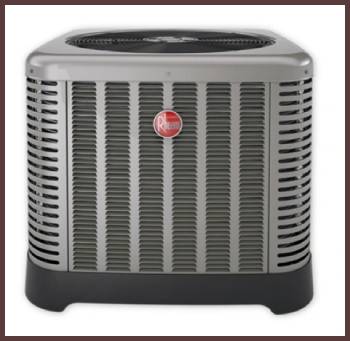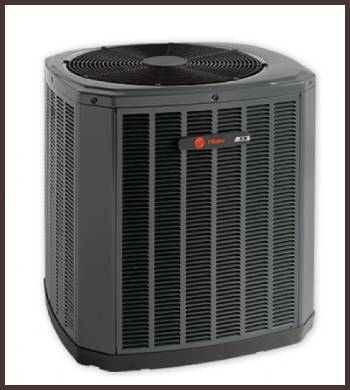Homeownership is a never-ending journey of upgrades, maintenance, and decisions about which brand will serve your needs best. One choice that will undoubtedly cross your path is selecting the right heating, ventilation, and air conditioning (HVAC) system. Three major players dominate this market – Rheem, Trane, and Carrier.
These brands boast a variety of products and customer satisfaction ratings that might leave you scratching your head in confusion. Fear not, we’re about to embark on an HVAC expedition to explore the ins and outs of each brand.
A Brief Comparison Table
| Rheem | Trane | Carrier | |
| Affordability | High (more budget-friendly) | Medium-High (can be pricier) | Medium-High (can be pricier) |
| Performance | Good | Excellent | Excellent |
| Efficiency | High | Medium-High | High |
| Durability | Good | Excellent | Good-Excellent |
| Warranty | Good (less comprehensive) | Excellent (comprehensive) | Good-Excellent |
| Noise Level | Low-Medium | Low | Medium |
| Smart Tech | Basic | Advanced | Advanced |
Rheem: Reliable and Cost-Effective

Let’s begin with Rheem. This company has a rich history, spanning over nine decades, and has crafted a reputation for reliability and affordability. Their HVAC systems are designed with longevity in mind, ensuring homeowners save significantly over time.
Pros of Rheem
One of Rheem’s major selling points is its competitive pricing. Compared to Trane and Carrier, Rheem typically offers a more affordable entry point. This can be a game-changer for families on a tight budget.
Another pro is their dedication to efficiency. Rheem HVAC units are known for high SEER (Seasonal Energy Efficiency Ratio) ratings, which translates into lower energy bills for the user.
Cons of Rheem
While Rheem units are reliable, they don’t necessarily excel in the high-performance category. For households with demanding climate control needs, a Rheem may not meet expectations. Also, their warranties aren’t as comprehensive as Trane or Carrier’s, which might be a sticking point for some homeowners.
Trane: A Pioneer in Performance

Next up, Trane. This industry juggernaut is often associated with high performance and cutting-edge technology. Trane’s systems are renowned for their longevity and ability to withstand harsh environmental conditions.
Pros of Trane
Trane’s prime advantage lies in its robust performance. Their HVAC systems are known to deliver consistently across various climates, ensuring comfortable indoor conditions year-round.
Secondly, Trane’s warranty coverage is comprehensive, providing customers with peace of mind. They stand behind their products with solid warranty programs that cover parts, labor, and units.
Cons of Trane
High performance often comes with a higher price tag. Trane units, while exceptional in their functionality, are more expensive than Rheem and even Carrier in some cases.
Another potential downside is the proprietary nature of Trane parts. This can make repairs and maintenance more challenging (and costly) if you’re not located near a certified Trane dealer or technician.
Read More: About Comparison Between Jellyfish Lighting Vs. Everlight
Carrier: Innovation Meets Tradition

Finally, we arrive at Carrier. A brand synonymous with innovation, Carrier claims the title for inventing modern air conditioning. They have continually evolved, offering a range of HVAC solutions that emphasize efficiency and performance.
Pros of Carrier
Carrier HVAC systems are lauded for their energy efficiency. Similar to Rheem, Carrier’s units have high SEER ratings, which can help lower energy bills.
Carrier also invests heavily in smart technology, offering units with advanced features like wifi connectivity and smart home compatibility.
Cons of Carrier
Like Trane, Carrier’s top-tier models are pricey. While they offer more budget-friendly options, you may miss out on some advanced features in the lower price ranges.
Carrier’s units can also be a bit noisy compared to Trane and Rheem, which might be a detractor for those seeking a quieter operation.
Frequently Askedb Questions (FAQs)
Here are some common questions and misconceptions about Rheem, Trane, and Carrier:
It depends on your needs and budget. Rheem offers cost-effective, efficient units, while Trane delivers high performance and robustness. Both are reliable and have good customer satisfaction ratings.
Again, it depends on your preferences. Trane excels in durability and performance but may cost more. Carrier’s strengths lie in energy efficiency and smart technology features.
No, Carrier and Rheem are different companies with distinct product offerings.
No, Rheem is not owned by Trane. Rheem Manufacturing Company is an independent company that manufactures residential and commercial HVAC systems.
Based on several consumer surveys, Trane consistently ranks as one of America’s most trusted HVAC brands. However, individual experiences can vary, and it’s important to consider your unique needs when selecting an HVAC system.
Both Trane and Carrier are reputable brands known for their reliability. The choice between the two often boils down to individual needs, budget, and specific model performance.
Read More: About Ketra Lighting Review
Conclusion
When deciding between Rheem, Trane, and Carrier, it’s crucial to take your specific needs, budget, and local climate into consideration. While Rheem offers excellent affordability and efficiency, Trane and Carrier shine in their high performance and cutting-edge features. Each brand has its unique advantages, making the ‘best’ choice subjective.
So, do your research, consider the pros and cons, and you’ll find the HVAC system that fits like a glove in your home. After all, in the battle of HVAC titans, your comfort is the true victor.



